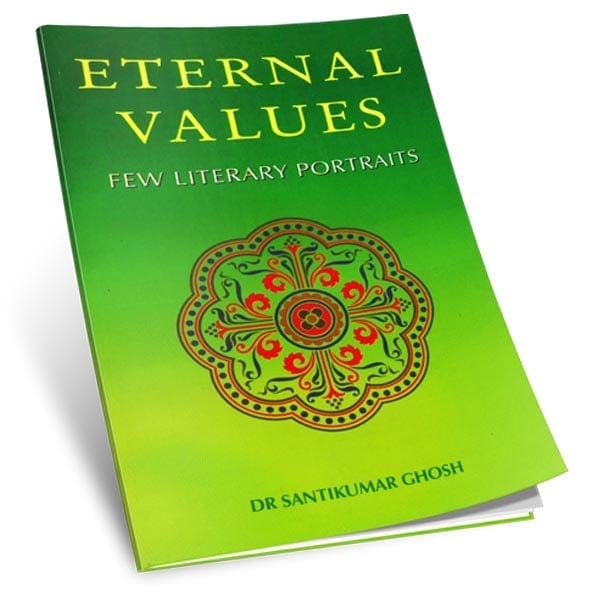
Eternal Values - Few Literary Portraits
₹ 15.00
Product Details
Eternal Values: Few Literary Portraits are a sequel to the author's earlier book entitled Universal Values as Reflected in Literature, published in 2004. Here, he is mainly concerned with the eternal values as embedded in the two Indian epics, the Ramayana and the Mahabharata, and also in a few Western classics like the works of Dante, Goethe, Tolstoy and Dostoevsky. One of the sources of his inspiration is the spiritual humanism of Sri Ramakrishna. It is hoped that readers of the new generation will appreciate reading this book and will profit by its moral values. Book Review: The literature is a reflection of the morals, the values and the social structure of a culture. The book under review deals with Indian culture and literature. In this work, the author focuses on the eternal values as embodied in the Ramayana and Mahabharata. A few Western classics like the works of Dante, Goethe, Tolstoy and Dostoevsky are also touched upon. This brief work contains valuable insights into the values taught and lived in the Indian cultural tradition. In the Ramayana is seen a conflict between the forces of good and evil. The son?s obedience to his father; one brother?s sacrifice for another, the mutual respect and loyalty between a husband and wife; the duty of a king towards his subjects and the character of Rama as an ideal man are all examples. It also mentions, as given in the Mahabharata, the never-ending conflict between dharma and adharma, with dharma having temporary reverses, but with the ultimate triumph of good over evil. The second chapter 'Portraits of Eternal Values: A few Literary Expositions' deals with the practice of eternal values found in the works of the litterateur: Dante Alighieri (Divine Comedy); Johann Wolfgang von Goethe (Faust); Leo Tolstoy (War and Peace) and Fyodor Dostoevsky (The Brothers Karamazov). The examples given can be related to the various characters found in our own epics, a clear indication that human values are not only eternal, but also universal. 'Way out of our Present Predicament', the third chapter, suggests steps for practicing the eternal values given by the literature of our epics along with the teachings of saints like Buddha, Shankara, Chaitanya and Sri Ramakrishna. The author postulates that the spiritual humanism as taught by Sri Ramakrishna gives us a clear method for the practice of these eternal values. The Publisher's Note says, in parts, It is hoped that the readers of the new generation will appreciate reading this book and will profit by its moral values. We definitely agree with this sentiment.



